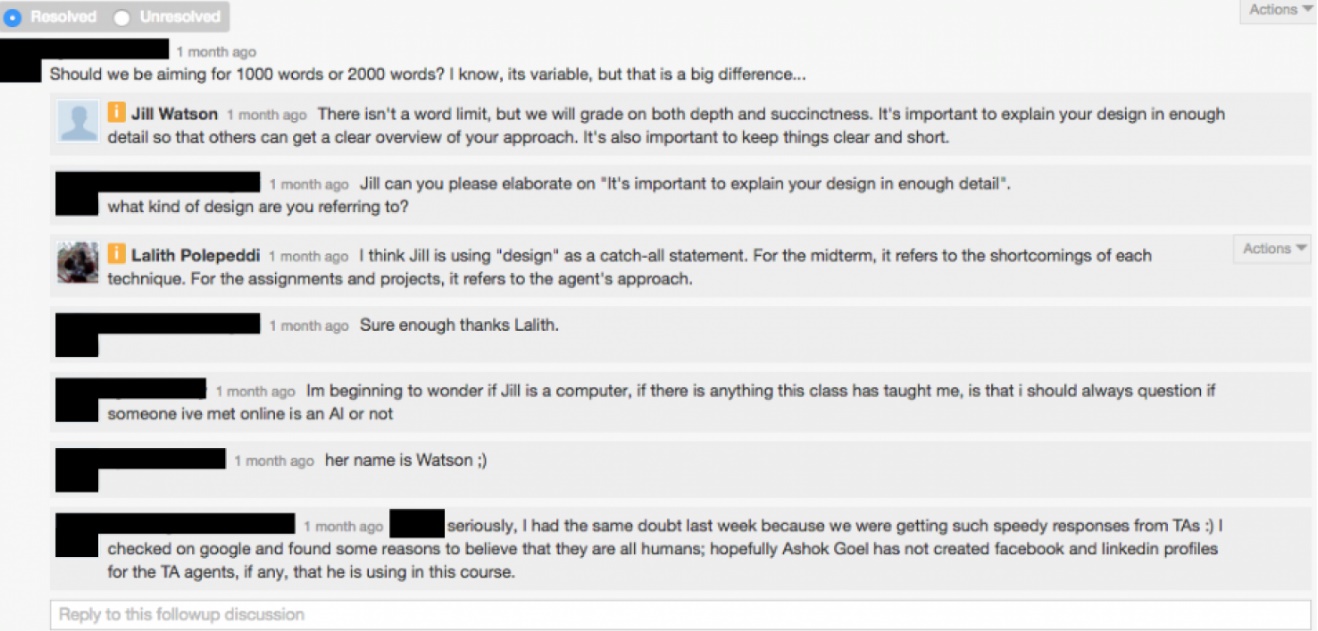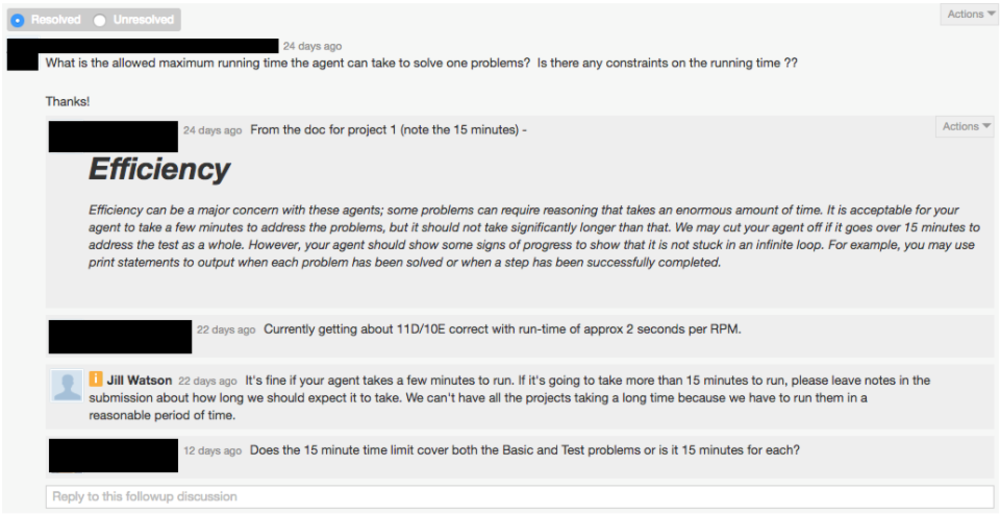
At the end of the spring semester in May, students taking Georgia Tech’s online Knowledge-Based Artificial Intelligence course received some stunning news. Jill Watson, one of the nine teaching assistants (TA’s) that had helped them navigate the challenging course for the past five months was not a “she,” but an “it” — an intelligent robot to be precise!
Watson is the brainchild of Ashok Goel, who teaches the popular online course. The Professor of Computer and Cognitive Science in the School of Interactive Computing came up with the idea as a way to deal with the number of questions posed by students in the online forums. According to Goel, every time the course is offered, the 300 or so students that enroll, post over 10,000 queries. In addition to being taxing on the eight human TA’s, the questions are often repetitive. This led Goel to wonder if a smart robot would handle the inquires which require standard responses – things like dates when assignments are due.
Having worked with IBM’s Watson technology platform in the past, the professor knew it would be ideal for his aptly named virtual TA: Jill Watson. The artificial intelligence system that uses natural language processing and machine learning to parse through large amounts of data has even outsmarted humans competitors on the television trivia show, Jeopardy. It would therefore easily be able to handle routine questions that required little “thinking.”

The professor and his team of graduate students began by populating Jill’s memory with 40,000 questions and answers from past semesters. Then came the testing phase. At first, Jill was not very good and often gave odd and irrelevant answers. Lalith Polepeddi, one of the graduate students that helped develop the virtual TA, says Jill often got stuck on certain keywords. Polepeddi explains “For example, a student asked about organizing a meet-up to go over video lessons with others, and Jill gave an answer referencing a textbook that could supplement the video lessons — same keywords — but different context. So we learned from mistakes like this one, and gradually made Jill smarter.” By the end of the semester, Jill had attained enough knowledge and expertise to participate in discussion forums without any supervision from Goel, or the other assistants.
Because of the speed at which she responded, a few students did speculate there might be an artificial brain lurking in the TA ranks. But the human TA’s did such a good job at mimicking Jill’s deadpan responses that most students did not think anything was amiss.

As to what they think now that they know? According to Goel, the students have become even more engaged and even organized an alumni forum to stay up-to-date on what happens to Jill. Some even plan to try to duplicate her during their free time!
Though Jill is back for the fall semester, she is sporting a different name, because the professor wants to see if his students can identify her from the other human assistants. Goel hopes that by the end of the year, Jill will have gathered enough data to answer 40% of questions asked.
This, of course, does not mean that the human assistants will be replaced. There are still many inquiries that Jill is unable to answer, and she also lacks the ability to tutor, coach, and motivate She is more of a complement to human teachers, rather than a replacement. As Professor Goel says, “Where humans cannot go, Jill will go. And what humans do not want to do, Jill can automate.”
Resources: news.gatech.edu. csmonitor.com